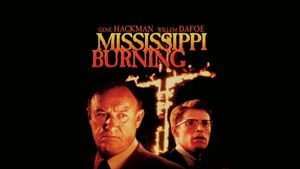With the onset of the cold and flu season, awareness of respiratory syncytial virus (RSV) has become increasingly important. RSV, which mimics common cold symptoms, poses serious health risks, especially for vulnerable demographics such as older adults and newborns. Though most people recover from RSV infections within weeks, the virus can escalate to severe illness requiring hospitalization, or, tragically, lead to death.
Public health officials, including those from the Centers for Disease Control and Prevention (CDC), have raised alarms about the severe outcomes associated with RSV. From the CDC's perspective, vaccination serves as the most effective means of prevention. According to Marcy Opstal, Senior Program Analyst at the Defense Health Agency, "RSV immunizations help prevent severe illness and hospitalization, especially among older people." This is particularly relevant, as elderly patients and those with chronic conditions are disproportionately impacted by RSV.
Last year, RSV vaccines were reported to reduce the risk of hospitalization or emergency room visits by 75%. Vaccination is strongly advised for several key groups: individuals aged 75 and older, and those aged 60 to 74 with underlying health issues such as heart disease, severe obesity, or diabetes. Unfortunately, chronic conditions are prevalent among older populations, with nearly 95% of adults aged 60 and older struggling with at least one chronic health condition.
Not just adults are affected by RSV; infants are at particularly high risk. Those under eight months old whose mothers did not receive the RSV vaccine during pregnancy are strongly encouraged to get vaccinated. Pregnant individuals are also advised to get vaccinated between weeks 32 and 36 of their pregnancy, as this can provide some immunity to the newborn during their most vulnerable months.
Vaccines such as the monoclonal antibodies for children and newly FDA-approved shots for adults are now available. Notably, clesrovimab, currently under the FDA review process, offers promise as another preventable measure. Dr. Paula Annunziato from Merck Research Laboratories remarked, "This regulatory milestone, along with promising results from our pivotal studies demonstrating efficacy... marks important progress toward our goal of having clesrovimab available..." If approved, it could be accessible for the RSV season of 2025-2026.
RSV is transmitted easily through common respiratory means: coughing, sneezing, or via surfaces contaminated with the virus. This makes preventative measures – including regular handwashing, avoiding contact with infected individuals, and keeping shared spaces clean – ever more significant. The CDC indicates RSV can be contagious for up to four weeks, particularly following symptom resolution among certain individuals.
Medical professionals encourage awareness of RSV due to its potential severity. Current research indicates the rate of serious illness and the need for hospitalization for unvaccinated RSV patients is alarming, especially when compared to similar respiratory illnesses like COVID-19 and influenza. Studies have shown RSV hospitalization rates were on par with COVID-19 severity among unvaccinated individuals.
To protect not just against RSV but also other respiratory diseases, the combination of receiving the flu vaccine and boosters for COVID-19 concurrently with the RSV vaccine is now widely recommended. CDC guidelines advocate for everyone six months and older to receive the newly updated COVID-19 vaccine, targeting the most recent strains.
The winter months can be particularly harsh for respiratory viruses, and public health measures are more pressing than ever. Prevention, education, and vaccination are indispensable tools to combat the potential impact of RSV and keep communities safe. The upcoming season is not only about warding off colds but also emphasizes the importance of staying informed about RSV risks and protective measures.



